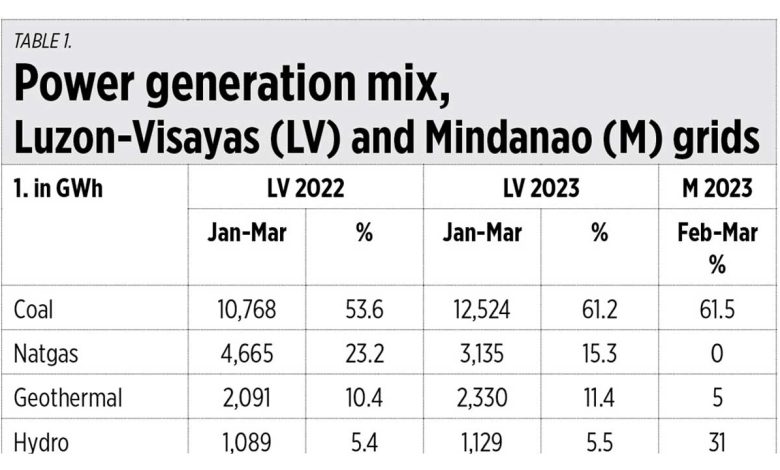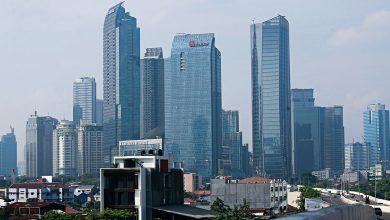Growth projection, electricity generation and PPP Center

Last week, the Development Budget Coordination Committee (DBCC) held a press conference on the revised macroeconomic and fiscal targets from 2023-2028. The DBCC — or the economic team — is composed of the Secretaries of the Departments of Finance and Budget and Management (DoF and DBM), the National Economic and Development Authority (NEDA), and the Governor of the Bangko Sentral ng Pilipinas.
It is good that the economic team is keeping the original growth targets at 6-7% for 2023, and 6.5-8% for 2024-2028. As argued in this column last Monday, the Philippines’ quarterly GDP growth momentum in 2022 plus employment data as of February 2023 show that the domestic economy is dynamic, and local businesses can sustain a virtuous cycle of production-consumption at higher and rising levels.
I also think that the macroeconomic assumptions to make the growth projections are realistic. For instance, the Dubai crude price of $70-$90/barrel for 2023-2024, and $60-$80/barrel for 2025-2028. The actual Dubai prices from January 2023 to the present range from $75-$85/barrel, so there are four months of actual data that support the assumption already. Oil price pressure is stabilizing if not declining because many countries continue to buy cheap Urals or Russia oil, which is $10-$15/barrel cheaper than Dubai and other OPEC exporters. This competition is somehow good for us.
This week, the Independent Electricity Market Operator of the Philippines (IEMOP) released the mid-April update for power supply-demand prices. I computed the total power generation by source or technology, then averaged in supply-demand, January-March 2023, and compared them with same period last year.
The share of coal in installed capacity has not increased — roughly about 40% of the total — but actual power generation has increased from 54% in the first quarter 2022, to 61% of the total generation this year. So, it is unwise and dangerous for the country to listen to the climate lobby about restricting and even killing coal power because their beloved wind-solar can contribute only 4.7% of total generation.
Electricity prices have increased from an average of P6.47/kWh last year to P7.24/kWh this year mainly because of declining power margins; demand is picking up while supply is not rising at commensurate levels (see Table 1).
Meanwhile, in Boo Chanco’s column in the Philippine Star last week (April 24), “Cabinet Rigodon,” he wrote: “When the President says we need the private sector to partner with the government for big projects, he must make sure the NEDA, PPP Center, and all the other bureaucrats get the message and not add to the red tape for approvals. Proponents complain that there is so much back and forth on requirements that waste time…”
As stated earlier, I am following the work of the economic team including NEDA and the PPP Center (Public-Private Partnership Center of the Philippines) and I can say that Boo’s assessment of the bureaucracy at these two agencies, especially the PPP Center, is lousy. There are three reasons why I think so.
One, there is a robust number of PPP projects in the pipeline which are processing faster. I checked the PPP Center website — there are 100 projects costing P2.249 trillion in the pipeline already: 15 projects in transportation (airports, seaports, rail, terminal), 15 on toll roads, nine in property development, six in health, six in water and sanitation, five in information and communications technology (ICT), four in solid waste management, three in power/energy, and one in tourism.
Two, the PPP Center has to observe and follow the project approval timelines of the 2022 Revised IRR of the Build-Operate-Transfer (BOT) Law, which addresses bottlenecks and seeks to streamline the process. If there is very fast approval, some people will complain of “undue haste,” that the projects are not well-studied, that there is no due diligence by government.
In the past, the actual Investment Coordination Committee (ICC) approval timeline, that passed through the Technical Board (TB) and Cabinet Committee (CC), was an average of 15.7 months for solicited projects and 19.7 months for unsolicited projects. Under the Revised 2022 BOT Law IRR, Indicative ICC approval timelines are projected to be down to only 4.3 months for solicited and 11.8 months for unsolicited projects. These indicative timelines could be shorter if all documents are sufficient to aid decision making, or longer if conditional approval is given (see Table 2).
Three, the economic team now holds regular meetings for the ICC-TB, ICC-CC, and the NEDA board. I asked some friends in NEDA about the frequency of meetings, they told me that in less than a year, the Marcos Jr. administration has already held 10 ICC-TB meetings, three ICC-CC meetings, and six NEDA board meetings with two PPP matters on the agenda. The PPP Center just makes sure that all the requirements are met and acts on them, it does not wait for schedules anymore.
There, the numbers speak for themselves — there is less bureaucracy, there is faster approval of projects that will help businesses and the economy overall.
Meanwhile, the BusinessWorld Economic Forum (BWEF) 2023 will roll out on May 25 at the Grand Hyatt Manila at Bonifacio Global City, Taguig. The theme this year is “The Digital Future: Accelerating Business and Sustainability.”
As an advocate of individual liberty and free market economics, I think more digital business can support this advocacy because there will be less bureaucratic and arbitrary interventions. And investors from abroad — or even digital workers in remote beach resorts in the country with access to the web — can follow the rules and status of their compliance. But safeguards should be in place so that future authoritarian governments will not harvest and use digital information on people and businesses for more dictatorial policies and impositions.
To see the speakers, agenda, and to register for the BWEF 2023, check here: https://www.bworldonline.com/bwefthedigitalfuture/.
Bienvenido S. Oplas, Jr. is the president of Bienvenido Oplas, Jr. Research Consultancy Services, and Minimal Government Thinkers




